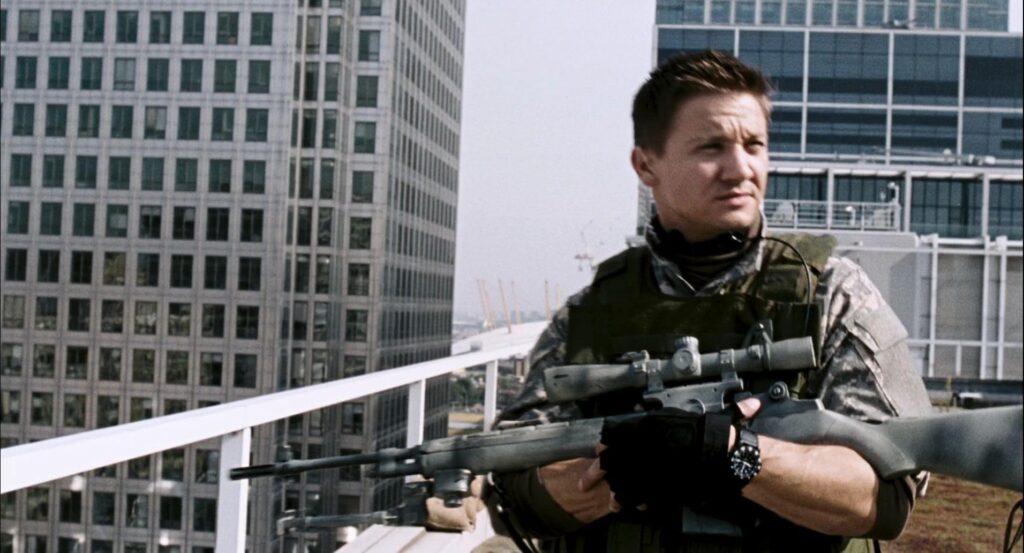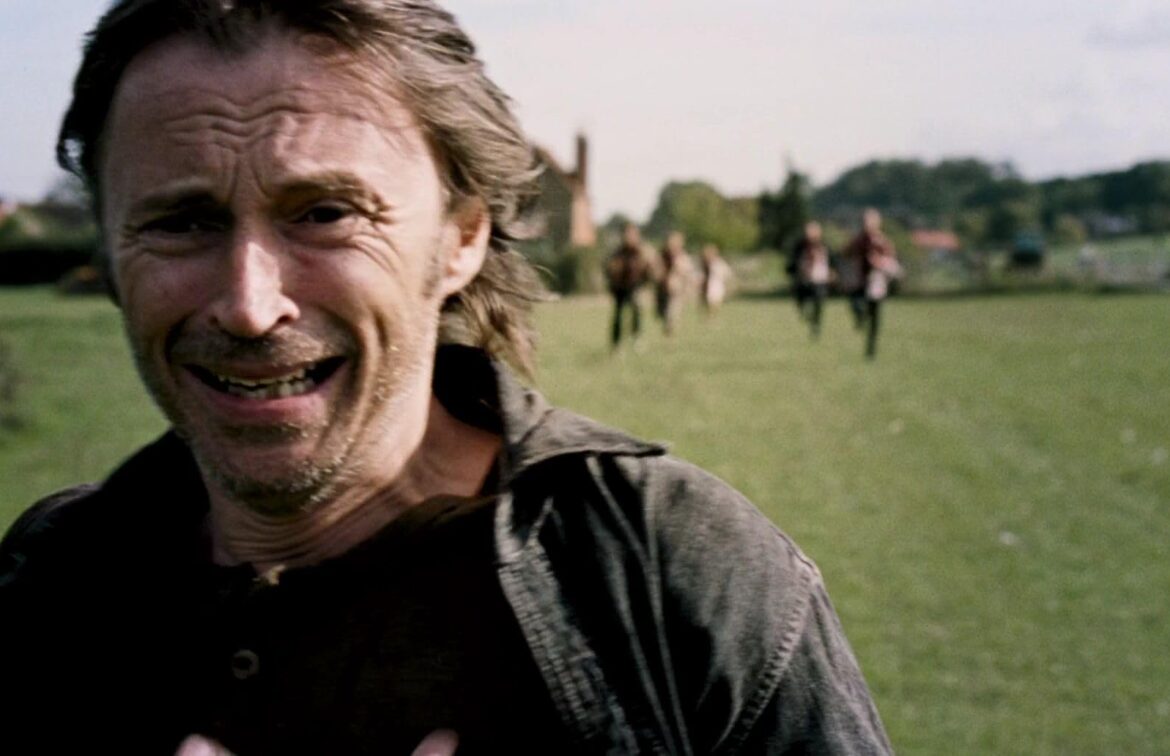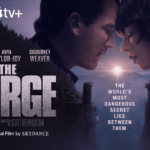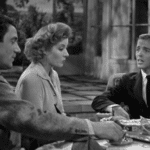I was behind on watching both 28 Days Later and 28 Weeks Later, only catching up with the former early last year. With the recent announcement of the forthcoming sequel(s), 28 Years Later, I decided to revisit 28 Weeks Later in hopes that it would expand on the first film’s premise while continuing to push the zombie genre forward. Unfortunately, I was disappointed. With a new director and four different screenwriters, the film replaces the original’s clever filmmaking with sheer spectacle.
28 Weeks Later begins with Don and Alice, a husband and wife played by Robert Carlyle and Catherine McCormack, living in a remote cabin with a group of survivors. When a desperate child seeks refuge, claiming to be fleeing from his infected parents, it isn’t long before the group is ambushed by the franchise’s terrifyingly fast “zombies.” In the chaos, Don makes a fateful decision—one that will haunt him throughout the film—and ultimately emerges as the only clear survivor.
Some time later, we are introduced to the Green Zone, a secured area in Britain controlled by the American military, led by Idris Elba’s character General Stone. The infected haven’t been seen in a while, and soldiers like Doyle (played by Jeremy Renner) treat their patrols as routine exercises. The arrival of a new group of British civilians—including Don and Alice’s two children—shakes things up. The kids reunite with their father but, unable to resist the urge to escape and visit their old home, they set off a chain of events that leads to the inevitable outbreak.

Jeremy Renner in 28 Weeks Later
The heart of the story is meant to revolve around this fractured family, but unfortunately, this ends up being the film’s weakest element. While Don’s early actions present intriguing moral dilemmas, they’re only briefly explored before the focus shifts to his children’s reckless antics, which have dire consequences. The problem is that the film gives us little reason to sympathize with them. Having been away during the initial infection period, they—like the soldiers—fail to grasp the full horror of the situation. The film expects us to care simply because they’re children, echoing the way the cabin survivors initially protected the boy who sought refuge. Which suggests the film perhaps doesn’t care about the children at the center either? (It doesn’t help that both child actors deliver flat performances.)
Perhaps the film’s strongest moment comes at the end of the first act, with a reunion that is as tragic as it is inevitable. Unlike other post-apocalyptic films that use such moments to offer hope, this one quickly turns into a nightmare, setting off a relentless chase sequence that, unfortunately, fails to sustain the film’s momentum.
One of the film’s redeeming aspects is Jeremy Renner’s character, who takes on a more prominent role in the latter half. This is pre-Hurt Locker Renner, but he already shows the stoic intensity that would define his later performances. His character’s growing doubts about his orders create a compelling moral dilemma, one that feels especially relevant given that this film was released only a few years into the Iraq War. When he finally chooses to take action, it adds some much-needed depth to the story.
However, by this point, 28 Weeks Later has fully descended into over-the-top spectacle. While the special effects are impressive and effective in the moment, they lack staying power. The film prioritizes action over emotional weight, turning into a series of increasingly elaborate set pieces.
Adding to the frustration is the film’s overreliance on a particular looming threat that keeps reappearing in ways that stretch even this universe’s internal logic. While it’s clearly meant to carry emotional weight, its execution is clumsy and repetitive, undermining its intended impact.
Ultimately, after being captivated by 28 Days Later, I found 28 Weeks Later to be a major disappointment. A film with four screenwriters is often a red flag, and this one feels cobbled together from better ideas without a clear vision. Rather than a meaningful continuation of the story, it comes across as an excuse for stunts and action at the expense of heart.
Hopefully, the reunion of Danny Boyle and Alex Garland will breathe new life into 28 Years Later when it arrives later this year.









